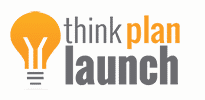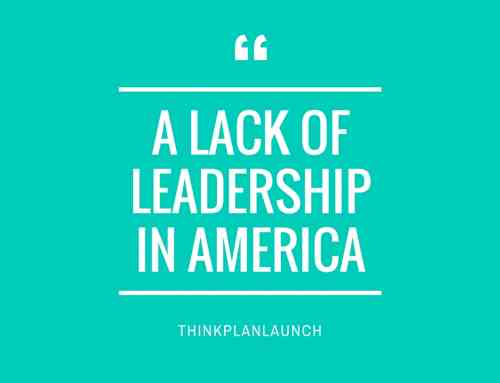Table of Contents
A career aptitude test helps you find the perfect job
It’s no surprise that a lot of job seekers are starting to take their job search to the next level by taking career aptitude tests. A career aptitude test is a quiz or assessment which helps job seekers with their job search. These days, many employers use pre-employment assessments (similar and sometimes identical to career aptitude tests) to match job candidates to job positions. It can be a stressful experience for job seekers who must battle with financial uncertainty, job satisfaction, and the interview process. For the employer, they must match the right candidate or they will lose time and money from hiring the wrong person which leads to turnover, low productivity, and bad morale for all.
Job seekers these days face a barrage of tests that employers throw at them (for good reason). The best approach for a job seeker is to be prepared before they apply for the wrong job and get undesirable results. The ultimate question a job seeker should ask themselves is what career is right for me? The answer isn’t always obvious. Someone’s current career, university major, set of skills or interests, might seem to be the obvious answer. It usually isn’t. That is where a career aptitude test comes in. It helps you discover and understand your personality, skill sets, and interests which in turn will help you find the right career.
The best job for you is the one that matches you
Many people go down the wrong path because they desire a high income job that makes them miserable or a boring job that doesn’t challenge and reward them or even a job that has prestige but lacks happiness.
We have answered the what and the why. We must now answer the when for a career aptitude test. The best time to take a career aptitude test is before you even write your resume. It is the first step in your journey to a satisfying career.
Does a career aptitude test actually work?
Career aptitude test results vary depending on the specific test taken and which career paths matches your set of skills and experiences. (We think skills and experience alone should not be criteria for a job match). For the most part, they can be of great use to someone who is unsure of their talent potential. Career aptitude tests for college students is an obvious choice but any adult can use it to their advantage. Always keep in mind, at some point in your life, you will most likely be given an assessment by an employer. Knowing your strengths and weaknesses will help you excel in these assessments when you know which positions suit you.
Career aptitude test types
There are different career test types available. Some career tests will point you to a specific list of careers. Some will reveal your top skills. Some will test and measure your personality profile aspects such as behavior, motivators, values, and more. While it might seem best to try out the job tests first, you can uncover much more with a personality assessment.
Personality profile tests
1. DISC assessment
What it is: DISC stands for Dominance, Influence, Steadiness, and Compliance (or Conscientious). These are the four behavior styles, an important part of one’s personality profile, which influences a person’s behavior and communication.
What it measures: The DISC assessment will indicate which of the four styles a person possesses and to what extent. It is typical that a person will measure high for one or more DISC types.
How it helps: For many jobs, behavior affects a person’s attitude, stress-level, communication skills, and leadership and teamwork qualities. The DISC test is a great way for someone to understand their strengths and weaknesses which will help them find the right job that requires the right behavioral style. Job descriptions are a clue into what behavior an employer is seeking. Matching one’s own behavior to a job increases the chance for the employee and employee to have job success.
2. Myers-Briggs Type Indicator
What it is: A Myers-Briggs test is used to model a person’s perception and how they make decisions. It is one of the most popular personality profile tests and is well known in the human resources community.
What it measures: The Myers-Briggs test will measure a person’s psychological functions in regards to sensation, intuition, feeling, and thinking.
How it helps: A good number of jobs are already specified to be compatible with different types. Knowing your type could lead to a discovery of a solid career path for you.
3. Big Five Personality Assessment
What it is: The Big Five personality assessment covers the five personality and psyche dimensions that predicts learning ability and job success.
What it measures: It measures openness to experience, conscientiousness, extraversion, agreeableness, and neuroticism in a questionnaire.
How it helps: The Big Five places a lot of emphasis on a person’s learning abilities. Learning styles can be analyzed and tweaked which is critical for people to be successful in a job situation that requires a lot of learning.
4. Kolbe A Index
What it is: The Kolbe A Index is a questionnaire that looks into a person’s natural instincts and actions that take place from it. It involves a person’s natural tendencies, impulses, and efforts.
What it measures: The Kolbe A Index predicts a person’s “method of operation” by measuring the conative strengths.
How it helps: It helps a person become aware of their own instincts which influences the way the communicate and lead others. Improvement in these areas can lead a person into the role of a manager.
5. Self-Directed Search
What it is: Self-Directed Search, also known as SDS, was developed by a leading psychologist in 70s and is used widely as a career assessment tool for students and job seekers to find their education and career path.
What it measures: SDS measures a person’s type – realistic, investigative, artistic, social, enterprising, or conventional.
How it helps: In addition to career paths which are associated with each type, a job seeker could find it inspiring for off-the-job activities that help them further their current career.
6. Careerkey
What it is: Careerkey is comprehensive set of career aptitude tests based off of the Holland Codes.
What it measures: It measures a person’s strengths, values, personality, and skills.
How it helps: There is a good list of jobs that relate to your measurements on this test. It can help you open up to new sectors you haven’t thought of before.
7. Riso-Hudson Enneagram Type Indicator
What it is: The Enneagram Type Indicator is used in business and religious organizations to determine a person’s personalty type and their charateristics.
What it measures: It indicates which of the nine personality types a person belongs to.
How it helps: While this personality test is on the far end of the scientific spectrum, there are wide applications of its use to help individuals overcome weaknesses and find jobs which utilize each type’s major strengths
8. Emotional Quotient
What it is: An emotional quotient (EQ) test covers a person’s inner and outer emotional perceptions and responses. It is also called emotional intelligence.
What it measures: An EQ test will measure a person’s problem solving abilities across four areas of emotional intelligence.
How it helps: EQ has been praised as an accurate indicator of leadership potential in a person. Job seekers who have a high EQ score generally will do better in leadership positions and should make an effort to find them.
Skill tests
9. TOEFL/IELTS
What it is: TOEFL and IELTS are English language proficiency exams used by academic institutions and more increasingly by employers and visa-granting agencies as immigration becomes more important to bolster a workforce.
What it measures: Speaking, writing, listening, and reading skills in English are measured from basic to mastery. An average native English speaker might have difficulty getting a perfect score.
How it helps: Opportunities are increasing around the world for people of different countries to seek employment elsewhere. English skills are quickly becoming relevant as many employers are looking abroad to find talent. Scoring high on one of these tests can help a lot when trying to convince a potential employer that English won’t be a problem in the meeting room.
10. ASVAB
What it is: ASVAB stands for the Armed Services Vocational Aptitude Battery which is used by the military to place enlisted personnel into different vocations. It is covers a wide range of subjects and resembles a typical academic test.
What it measures: ASVAB measures proficiency of skills across various academic and vocation fields.
How it helps: The ASVAB test, though used by the military, can be a valuable tool to see what kind of skills are person excels at which can be applied for finding the perfect job.
11. ISEEK Skills Assessment
What it is: the ISEEK Skills Assessment is a self-questionnaire that covers 35 basic, management, people, technical, and system skills used in a job.
What it measures: It measures the preference of each skill and indicates a list of careers that are a good match for preferences.
How it helps: While preference alone isn’t the way to find the perfect job, it can narrow the field and make it easier to find a good match.
Job placement tests
12. Department of Labor O*NET Interests Profile
What it is: Based off of the SDS test, the O*NET Interests Profile introduces a long list of job activities which asks the test taker to decide if each of the activities are enjoyable or not.
What it measures: The test measures six types of occupational interests and matches highly favored activities to jobs that include them.
How it helps: The Interests Profile test helps point someone to an area that will excite them and hopefully keep the person motivated to succeed in the career.
13. MAPP Career Assessment Test
What it is: The MAPP career assessment test is a questionnaire on preferences.
What it measures: The test measures a person’s overall preference in job activities.
How it helps: The MAPP career assessment tests tries to point you towards specific jobs in its vast list of benchmarked jobs.
14. Psymetrics
What it is: Psymetrics consists of puzzles and games used to suggest careers
What it measures: Psymetrics creates a cognitive and emotional profile that is measured against a list of potential jobs.
How it helps: Unlike the other “preference” based career aptitude assessments, Psymetrics uses a more complex algorithm to mitigate any biases.
15. Career Strengths Test
What it is: The Career Strengths Test is a fun tool sponsored by Oprah to help people determine what jobs they might excel at
What it measures: There are five tests each with a different list of potential jobs for each of the test that you can score in.
How it helps: This is a fast, fun way to get inspiration for your job search




Very good content and informative. Thank you for sharing. I have learned a lot from this blog and will also be sharing this social network.